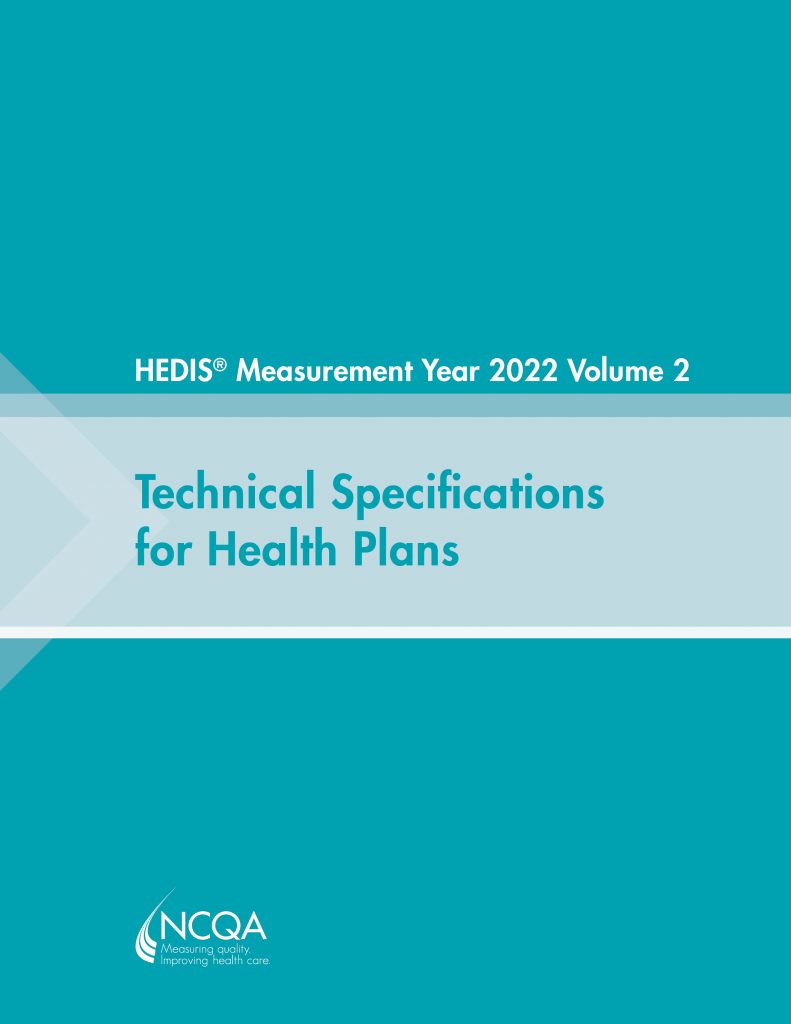HEDIS 2022: See What’s New, What’s Changed and What’s Retired
August 3, 2021 · NCQA Communications
Every year, NCQA updates and releases the Healthcare Effectiveness Data and Information Set (HEDIS®). This process ensures that HEDIS measures remain relevant and feasible for implementation. We don’t take HEDIS updates and changes lightly: Measure development and updates follow a rigorous process that includes a public comment period and input from advisory panels. For MY 2022, HEDIS added three new measures, retired three measures/indicators and changed seven existing measures and two cross-cutting topics that address enhancements across multiple measures.
New HEDIS Measures
The newest additions to HEDIS address patient-centered care, as well as safety and appropriateness.

- Advance Care Planning. The percentage of Medicare members 65-80 years of age with advanced illness, indication of frailty or receiving palliative care, and adults 81 years of age and older who had advance care planning during the measurement year.
Intent: Advance care planning is associated with improved quality of life, increased provider trust and decreased hospitalization. This measure will allow plans to understand if advance care planning is provided to beneficiaries who are most likely to benefit from it.
- Antibiotic Utilization for Respiratory Conditions. The percentage of episodes for members 3 months of age and older with a diagnosis of a respiratory condition that resulted in an antibiotic dispensing event.
Intent: Antibiotics prescribed for acute respiratory conditions are a large driver of antibiotic overuse. Tracking antibiotic prescribing for all acute respiratory conditions will provide context about a health plan’s overall antibiotic use when viewed with three HEDIS measures of appropriate testing and inappropriate prescribing for upper respiratory infections, pharyngitis and acute bronchitis. To learn more, click here for a discussion of this new measure.
- Deprescribing of Benzodiazepines in Older Adults. The percentage of Medicare members 65 years of age and older who were dispensed benzodiazepines and achieved a 20% decrease or greater in benzodiazepine dose during the measurement year.
Intent: The 2019 American Geriatrics Society Beers Criteria recommend that benzodiazepines be avoided in older adults. Several clinical guidelines recommend deprescribing benzodiazepines slowly and safely, rather than stopping use immediately, to minimize withdrawal symptoms and improve patient outcomes. With this deprescribing measure, there is an opportunity to promote harm reduction by assessing progress in appropriately reducing benzodiazepine use in the older adult population.
Changes to Existing HEDIS Measures
- Acute Hospital Utilization. NCQA revised this risk-adjusted outcome measure to exclude planned hospitalizations and updated it to remove separate Medical and Surgical reporting categories, retaining the Total rate (which includes medical and surgical admissions).
- Identification of Alcohol and Other Drug Services/Diagnosed Substance Use Disorders. NCQA revised the measure structure from “utilization” to “diagnosed-prevalence” of substance use and updated the name to Diagnosed Substance Use Disorders. NCQA also revised the measure denominator to reflect the number of members, rather than member years, and to include substance use disorder codes; and revised the age groups for reporting to 13–17, 18–64 and 65+.
- Mental Health Utilization/Diagnosed Mental Health Disorders. NCQA revised the measure structure from “utilization” to “diagnosed-prevalence” mental health disorders and updated the name to Diagnosed Mental Health Disorders. NCQA also revised the denominator to reflect the number of members, rather than member years, and to include mental health disorder codes in “any position” rather than by “principal diagnosis.” Recognizing that mental health disorders may be treated by primary care and other practitioners, NCQA removed the “mental health practitioner” requirement from the numerator. NCQA also revised the child and adolescent age groups for reporting to 1–17.
- Initiation and Engagement of Alcohol and Other Drug Abuse or Dependence. NCQA revised the measure name to Initiation and Engagement of Substance Use Disorder Treatment; changed the measure from “member-based” to “episode-based”; changed the denominator to lengthen the negative SUD history period from 60 days to 194 days and remove ED visits and medically managed withdrawal from the negative SUD history period; removed the numerator requirement that psychosocial treatment accompany pharmacotherapy; and revised the age stratifications to reflect ages 18–64 years and 65+ years.
- Follow-Up After Emergency Visit Department Visit for Alcohol and Other Drug Dependence/ Follow-Up After ED Visit for Substance Abuse. NCQA revised the measure name to Follow-Up After ED Visit for Substance Use. For the denominator, NCQA added ED visits for unintentional or undetermined overdose for commonly used drugs with addiction potential in “any” diagnosis position. For the numerator, NCQA allowed follow-up visits with SUD indicated in “any” diagnosis position; and added pharmacotherapy for alcohol or opioid use disorder; and incorporated outpatient or telehealth visits, for a diagnosis of drug “use” or overdose; services defined as addressing substance use (per CPT code description), without a diagnosis requirement; visits where a behavioral health assessment or screening is performed; outpatient or telehealth visits with a mental health provider; and substance use services provided by a peer recovery support specialis
- Use of Imaging Studies for Low Back Pain. NCQA expanded the upper age limit from 50 to 75; added reporting for the Medicare product line; added four clinical exclusions for osteoporosis (any history), lumbar surgery (any history), spondylopathy (any history) and fragility fracture (within 90 days prior to the index episode start date); and added two cross-cutting exclusions: palliative care and advanced illness/frailty.
- Comprehensive Diabetes Care/Hemoglobin A1c Control for Patients With Diabetes, Eye Exam Performed for Patients With Diabetes, Blood Pressure for Patients With Diabetes. NCQA separated the indicators into three standalone measures: Hemoglobin A1c Control for Patients With Diabetes with indictors for HbA1c Control <8 and Poor Control HbA1c >9, Eye Exam Performed for Patients With Diabetes, Blood Pressure Control for Patients With Diabetes.
Cross-Cutting Topics
- Race/Ethnicity Stratification. High-quality health care must be equitable health care. To be able to identify and reduce disparities in care, the first step must be measuring and reporting on performance. NCQA introduced race and ethnicity stratifications to five HEDIS measures: Colorectal Cancer Screening, Controlling High Blood Pressure, Hemoglobin A1c Control for Patients with Diabetes, Prenatal and Postpartum Care, and Child and Adolescent Well Care Visits.
NCQA plans to expand the race and ethnicity stratifications to additional HEDIS measures over several years to help reduce disparities in care among patient populations. This effort builds on NCQA’s existing work dedicated to the advancing health equity in data and quality measurement. To learn more, click here for a discussion of the stratification, how we arrived at this current point and FAQs.
- Electronic Clinical Data System (ECDS) Reporting. NCQA will allow voluntary ECDS reporting for three HEDIS measures: Childhood Immunization Status, Immunizations for Adolescents and Metabolic Monitoring for Children and Adolescents on Antipsychotics.
Retirement
NCQA is retiring the following measures/indicators:
- Care for Older Adults—Advance Care Planning Indicator. This clinical topic is now addressed in the new Advance Care Planning measure.
- Comprehensive Diabetes Care—HbA1c Testing indicator. NCQA will concentrate efforts on the outcome-based HbA1c Control for Patients With Diabetes measure.
- Antibiotic Utilization. This measure has been retired. NCQA now collects the new Antibiotics for Respiratory Conditions measure.
For more information, refer to the full measure specifications in HEDIS MY 2022 Volume 2: Technical Specifications for Health Plans. HEDIS publications are available as electronic publications. Additionally, NCQA invites you to join HEDIS Users Group for inside information on HEDIS development and future directions. To order, call 888-275-7585 or visit the NCQA Publications website.








